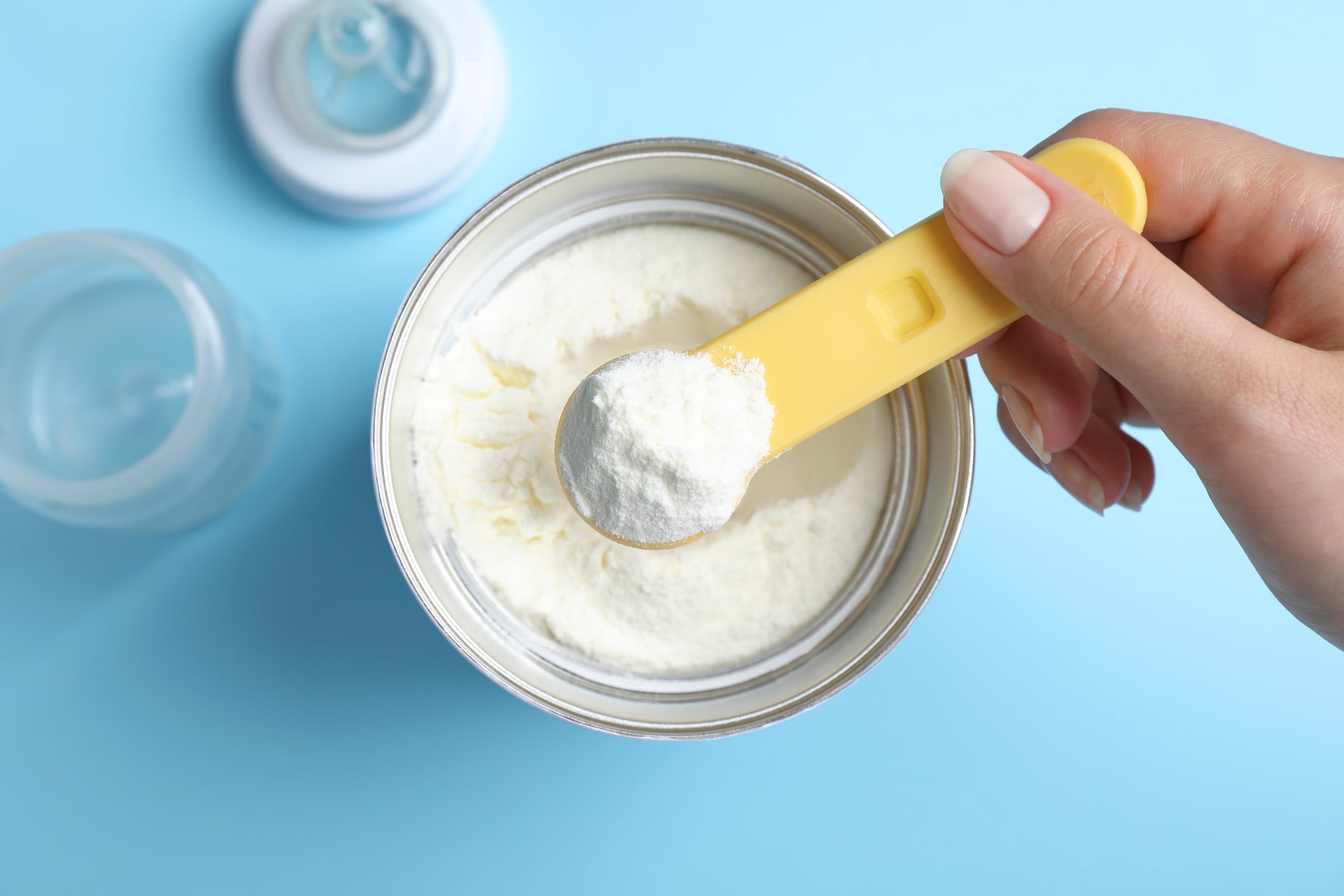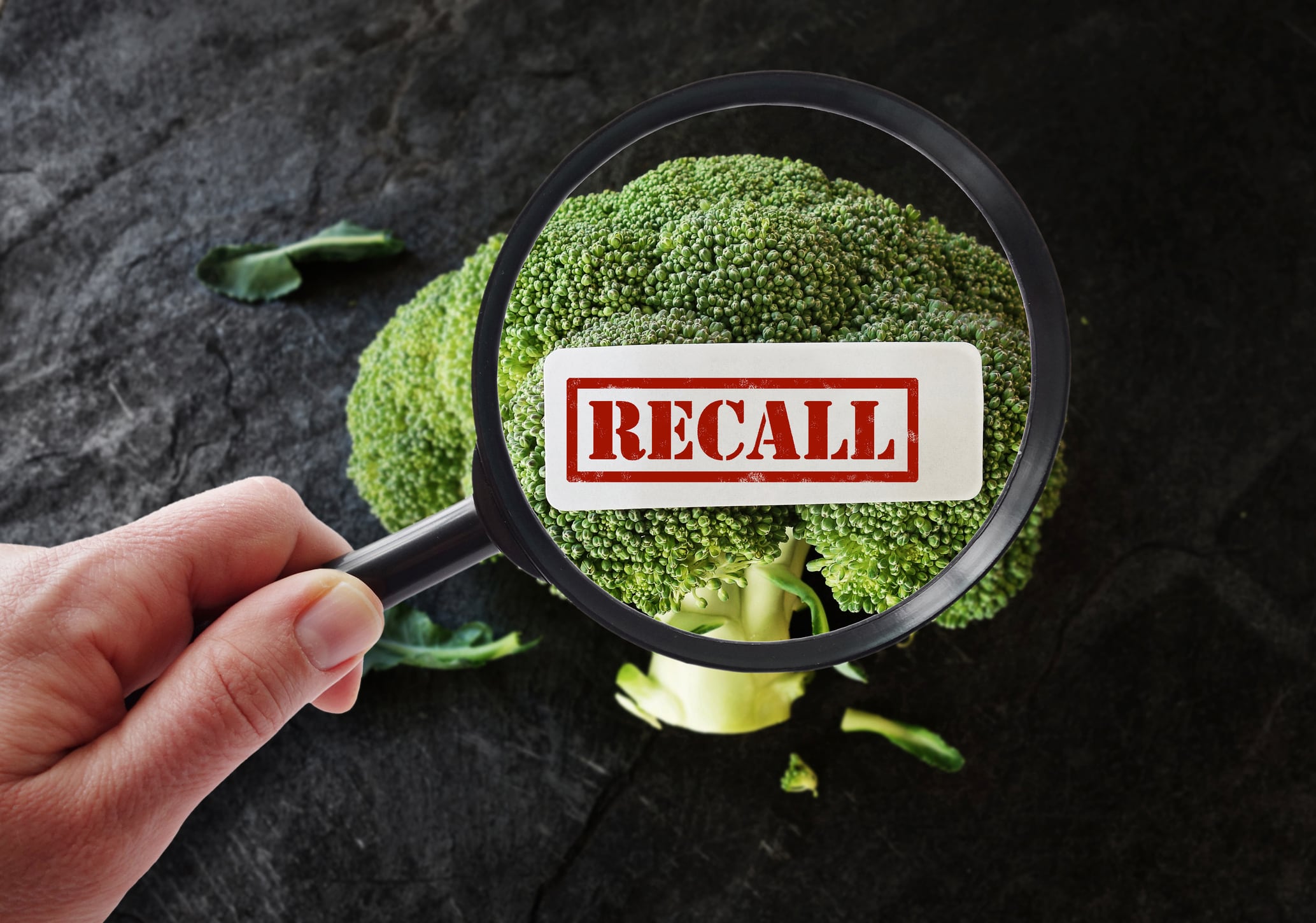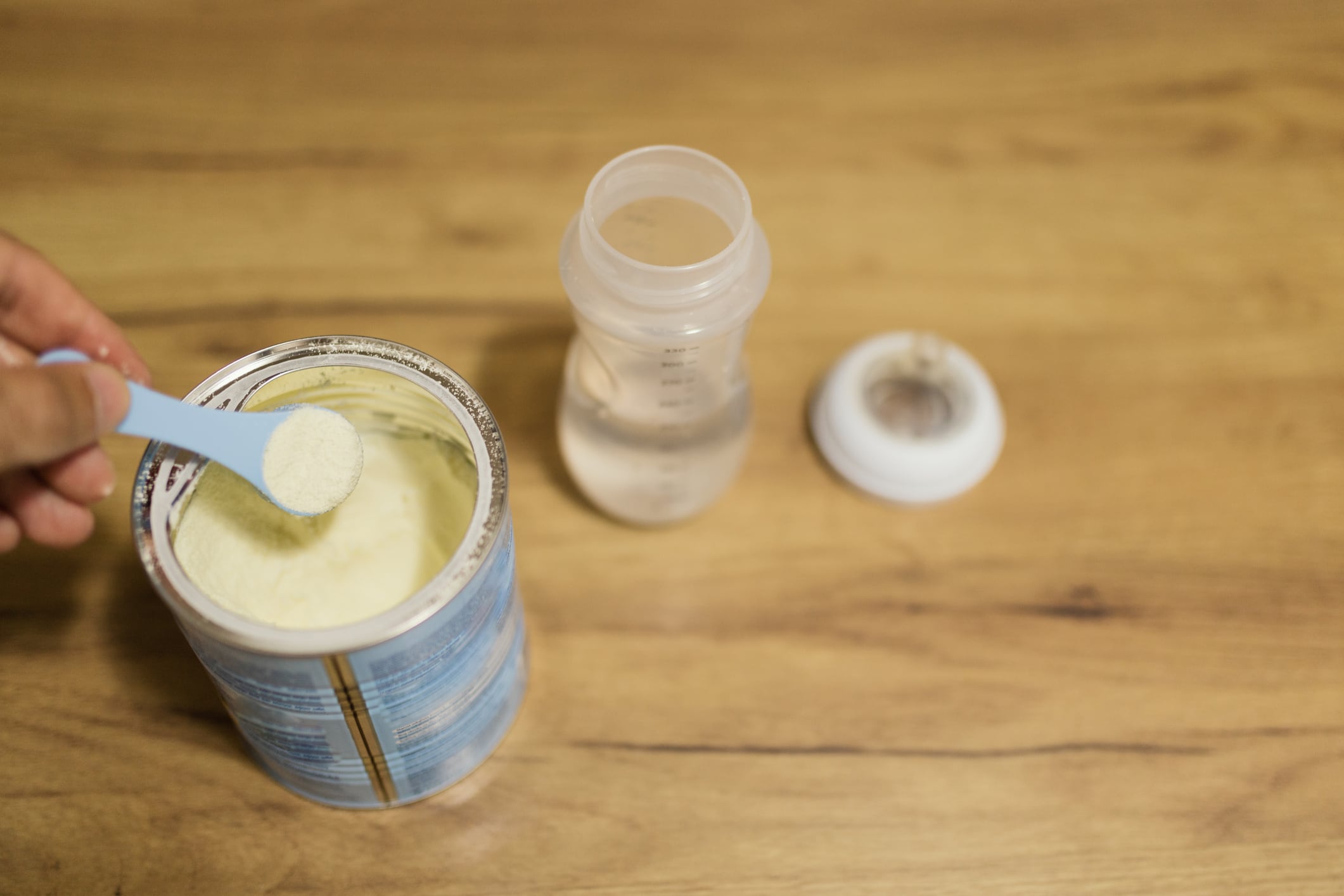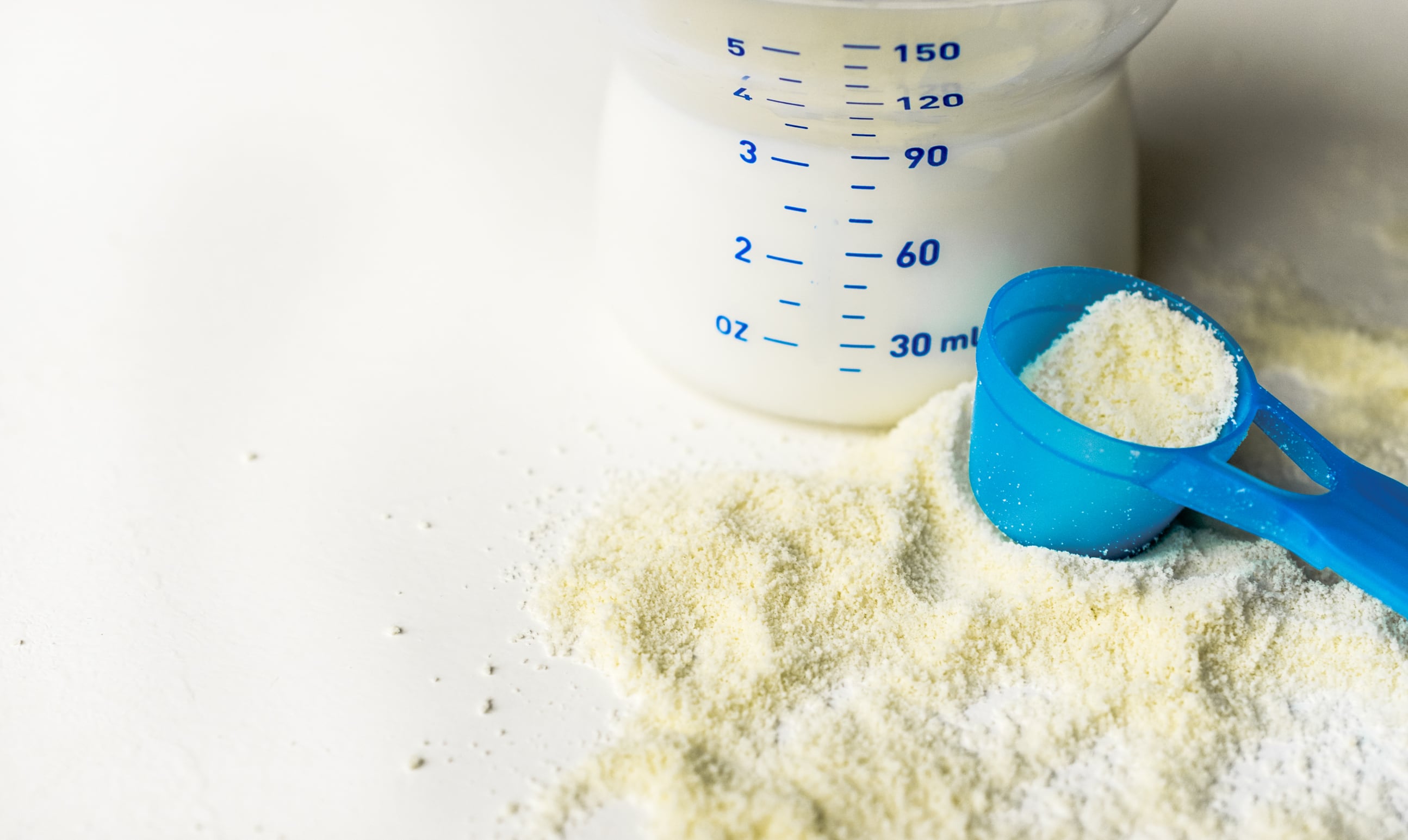Infant formula maker ByHeart waited until Nov. 11 to expand its recall nationwide, days after an FDA warning on Nov. 7 and an initial recall by the company on Nov. 8 — a lag critics say exposes serious cracks in the recall system.
Experts warn that only tougher oversight and sharper communication can prevent a repeat of dangerous outbreaks linked to infant formula, like the current one and other outbreaks in recent years that led to sweeping recalls and severe shortages.
Two batches of ByHeart’s powdered Whole Nutrition Infant Formula tested positive for Clostridium botulinum, which hospitalized 23 infants across 13 states as of Nov. 14, according to the CDC. Per FDA, illnesses began between Aug. 9 and Nov. 11. No deaths have been reported.
Within a day of FDA’s warning, ByHeart recalled on Nov. 8 two batches of its formula with the codes 251261P2 and 251131P2 - a move that, at the time, it characterized as “an abundance of caution” that “comes from our ongoing commitment to transparency and safety.”
The company expanded the recall on Nov. 11 to include all batches of ByHeart Whole Nutrition Infant Formula cans and Anywhere Pack.
In the Nov. 11 recall, the company’s Co-Founder and President Mia Funt said ByHeart is conducting a “comprehensive investigation to do our part to get the answers parents expect and deserve,” which includes testing every batch of formula with an independent third-party lab, giving FDA and the California Department of Health full access to its facilities and sharing results publicly as they become available.
ByHeart contests presence of botulinum in its products
ByHeart insists its formula is safe, even as California health authorities found botulinum spores in a sample of its product tied to an infant illness. The FDA’s nationwide recall followed, illustrating the tension between corporate assurances and independent public health findings.
Funt said “while no testing by ByHeart or regulatory agencies has confirmed the presence of Clostridium botulinum spores or toxin in any ByHeart product, we are taking this proactive step to remove any potential risk from the market and ensure the highest level of safety for infants.”
The FDA expanded the recall after the California Department of Public Health (CDPH) found Clostridium botulinum spores in a sample of ByHeart powdered formula from a patient’s home. Genetic testing confirmed the bacteria matched the strain that infected the infant. This was the first lab evidence linking the product to the outbreak, which prompted the eventual nationwide recall of all ByHeart formula products.
Although the California Department of Public Health advised consumers to stop using all ByHeart products after batches tested positive for infant botulism, the company maintained that no distributed products tested positive – underscoring the food safety testing gap between a CPG company and independent review.
Marion Nestle, professor of nutrition, food studies and public health, Emerita, New York University, said in an email interview:
“What is particularly distressing about this one is the company’s defensiveness in making statements that this is not its fault; it is not required to test for botulinum toxin. Infants who are not breastfed are completely dependent on formula and their parents have every right to expect the formula to be safe.”
FDA only requires testing for Cronobacter spp and Salmonella spp., per the Code of Federal Regulations on infant formula.
ByHeart’s spotty track record
This is ByHeart’s second recall in three years. ByHeart recalled five batches in December 2022 for possible Cronobacter sakazakii contamination at its third-party packaging facility.
FDA was not satisfied with the company’s remediation efforts related to the contamination and issued a warning letter to ByHeart for insufficient corrective action in pathogen detection (CITE).
“Two major recalls and a warning letter in three years is not a good track record, especially in such a critical category intended for the most vulnerable,” Frank Yiannas, former FDA deputy commissioner of food policy and response wrote in a recent blog post.
ByHeart’s communications ‘missed the mark’
Food safety experts and consumer advocates criticized ByHeart for delaying the nationwide recall days after FDA’s warning.
How can AI help prevent product recalls?
AI can help companies make quicker decisions and implement stronger compliance with fewer surprises to protect both consumers and brand reputation, according to Riskonnect CEO Jim Wetekamp. Companies using AI in their risk management initaitives can:
- Detect weak signals early: Missed sanitation logs, supplier non-compliance or slight temperature deviations often precede major recalls. AI surfaces these patterns and recommends corrective actions before they escalate.
- Strengthen recall readiness: AI runs rapid simulations to model how an issue could spread through the supply chain, which products would be affected, and containment timelines. Planning that once took weeks now happens in hours.
Susan Mayne, former head of FDA’s food safety center, noted that ByHeart’s initial communications related to the current recall “missed the mark,” citing the company’s lack of experience. The company was founded in 2016.
ByHeart’s recall “is a textbook case for how not to write a public alert,” Sarah Sorcher, director of regulatory affairs for Center for Science in the Public Interest, wrote on a LinkedIn post.
“Recalls 101: Tell consumers which products are being recalled and why. That’s it. It’s not advertising copy, and it’s definitely not the place to litigate the outbreak investigation,” wrote Sorcher. “Yet, ByHeart seems to be doing just that in their initial recall notice by arguing the evidence against them. Thinking you can outsmart the outbreak experts is a rookie mistake not acceptable from a brand looking to become a household name. Time for them to wake up and start taking food safety culture seriously.”
ByHeart’s recall reflects the “latest symptom of systemic regulatory failures that started with Abbott in 2022,” Marcus Washington, co-founder and CEO of NicomaNet, wrote in a Nov. 9 LinkedIn article. Abbott recalled its infant formula in February 2022 due to Cronobacter sakazakii contamination, which led to a nationwide infant formula shortage.
ByHeart was contacted for comment but did not respond by press time.
Recent recalls underscore 3 key lessons
1. Reputation moves faster than regulation: Companies need real-time visibility into safety, quality and supplier performance to act before issues become public.
2. Organizational silos slow crisis response: Quality, safety, supply chain and risk teams must share data and work from a unified plan to respond quickly.
3. Trust is the ultimate currency: Even a well-managed recall can damage trust if transparency and communication are lacking.
Companies that integrate real-time visibility, run regular mock recalls and maintain transparent communication are best positioned to protect both consumers and brand integrity, says Wetekamp.
Scope of the outbreak
A joint report from FDA, CDC, the California Department of Public Health and its Infant Botulism Treatment and Prevention Program found that as of Nov. 10, 84 infants nationwide received botulism treatment between Aug. 1 and Nov. 10. Of those tested, 43% (36 infants) were exposed to botulism from powdered infant formula and more than 40% of those (15 infants) were allegedly exposed to the bacteria from ByHeart’s products.
When consumed, botulinum spores produce a neurotoxin in the gut which, if untreated, can lead to respiratory failure and paralysis, according to the Cleveland Clinic.
According to FDA, ByHeart’s powdered infant formula was “disproportionately represented among sick infants in this outbreak.”
The agency suggested the extent of contamination could be broader. It noted with the caveat that “detection of Clostridium botulinum in infant formula is difficult, and a negative test result does not rule out the presence of the bacteria in the product.”
Currently, FDA has not named any other brands in connection to botulism contamination.
ByHeart’s products make up less than 1% of the total infant formula in the US market, and FDA confirmed that the company’s recall will not contribute to an infant formula shortage.
Regulatory context and systemic issues
A June 2024 Office of Inspector General (OIG) audit argued that FDA does not have proper protocols for sensitive categories like infant formula.
OIG’s independent reviews examine government agencies’ programs and operations to identify and prevent fraud, waste, abuse and noncompliance with laws and regulations.
Next steps and consumer reactions
Earlier this summer, the FDA announced its infant formula recall initiative, Operation Stork Speed. While the program is designed to accelerate recall communications, critics expressed skepticism on FDA’s capacity to perform independent evaluations.
In an Instagram post on Nov. 14, ByHeart offered refunds for purchases on or before Oct. 1 for up to two units. First-time customers will receive a full refund on their first order, according to the company.
Many customers responded with outrage, citing the policy as unacceptable and insulting, with some disputing charges with their credit card companies and others calling for automatic refunds.
One commenter wrote: “With the massive sale you ran days before your entire product was recalled you should have plenty of funds to refund the parents who purchased multiple cans from you,” adding that the post was written while “sitting on hold trying to reach you all.”
ByHeart says it is not responding to emails and only taking phone calls from customers on this issue.




